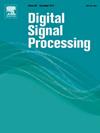Advances in meta-learning and zero-shot learning for multi-label classification: A review
IF 2.9
3区 工程技术
Q2 ENGINEERING, ELECTRICAL & ELECTRONIC
引用次数: 0
Abstract
Effectively dealing with multi-label classification is a significant challenge. Traditional methods often struggle with issues such as label dependencies, data imbalance, and a limited number of annotated datasets. However, meta-learning and zero-shot learning models offer promising solutions by leveraging previous tasks to enable rapid generalization with minimal data. In this paper, we provide a comprehensive review of meta-learning and zero-shot strategies for multi-label classification in various domains, including audio, text, image, and sensor data, focusing on research published between 2019 and 2025. It presents an overview of commonly used datasets and a detailed description of models designed to capture the relationships inherent in multi-label scenarios. In addition, we propose a novel categorization framework based on neural architecture enhancements, algorithm adaptation, and problem transformation to highlight the main contributions of the reviewed literature. The aim of this review is to provide valuable insights into the current state of meta-learning and zero-shot approaches for multi-label classification, offering guidance for future research and development in addressing the complexities of real-world multi-label tasks.
求助全文
约1分钟内获得全文
求助全文
来源期刊

Digital Signal Processing
工程技术-工程:电子与电气
CiteScore
5.30
自引率
17.20%
发文量
435
审稿时长
66 days
期刊介绍:
Digital Signal Processing: A Review Journal is one of the oldest and most established journals in the field of signal processing yet it aims to be the most innovative. The Journal invites top quality research articles at the frontiers of research in all aspects of signal processing. Our objective is to provide a platform for the publication of ground-breaking research in signal processing with both academic and industrial appeal.
The journal has a special emphasis on statistical signal processing methodology such as Bayesian signal processing, and encourages articles on emerging applications of signal processing such as:
• big data• machine learning• internet of things• information security• systems biology and computational biology,• financial time series analysis,• autonomous vehicles,• quantum computing,• neuromorphic engineering,• human-computer interaction and intelligent user interfaces,• environmental signal processing,• geophysical signal processing including seismic signal processing,• chemioinformatics and bioinformatics,• audio, visual and performance arts,• disaster management and prevention,• renewable energy,
 求助内容:
求助内容: 应助结果提醒方式:
应助结果提醒方式:


